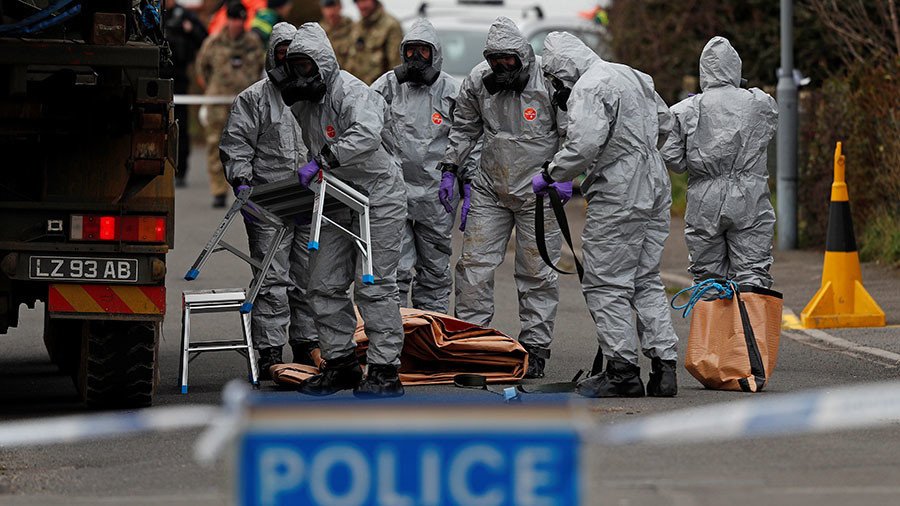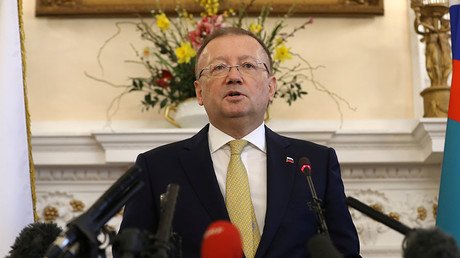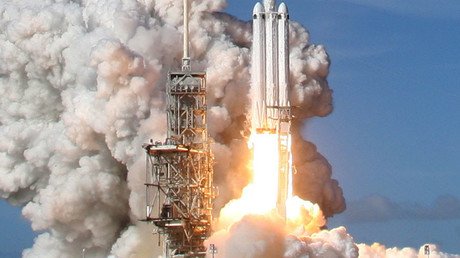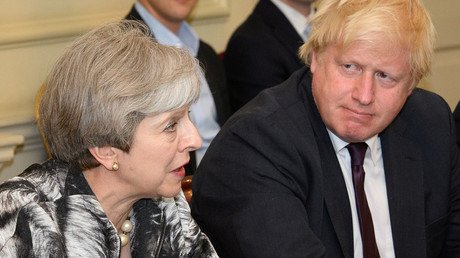Lavrov: Swiss lab says ‘BZ toxin’ used in Salisbury, not produced in Russia, was in US & UK service

The substance used on Sergei Skripal was an agent called BZ, according to Swiss state Spiez lab, the Russian foreign minister said. The toxin was never produced in Russia, but was in service in the US, UK, and other NATO states.
Sergei Skripal, a former Russian double agent, and his daughter Yulia were poisoned with an incapacitating toxin known as 3-Quinuclidinyl benzilate or BZ, Russian Foreign Minister Sergey Lavrov said, citing the results of the examination conducted by a Swiss chemical lab that worked with the samples that London handed over to the Organisation for the Prohibition of the Chemical Weapons (OPCW).
The Swiss center sent the results to the OPCW. However, the UN chemical watchdog limited itself only to confirming the formula of the substance used to poison the Skripals in its final report without mentioning anything about the other facts presented in the Swiss document, the Russian foreign minister added. He went on to say that Moscow would ask the OPCW about its decision to not include any other information provided by the Swiss in its report.
Lavrov said that the Swiss center that assessed the samples is actually the Spiez Laboratory. This facility is a Swiss state research center controlled by the Swiss Federal Office for Civil Protection and, ultimately, by the country’s defense minister. The lab is also an internationally recognized center of excellence in the field of the nuclear, biological, and chemical protection and is one of the five centers permanently authorized by the OPCW.
The Russian foreign minister said that London refused to answer dozens of “very specific” questions asked by Moscow about the Salisbury case, as well as to provide any substantial evidence that could shed light on the incident. Instead, the UK accused Russia of failing to answer its own questions, he said, adding that, in fact, London did not ask any questions but wanted Moscow to admit that it was responsible for the delivery of the chemical agent to the UK.
The Spiez Laboratory reflected on Lavrov’s words, tweeting late Saturday that only the OPCW “can comment [on] this assertion.”
The scandal erupted in early March, when former double agent Sergei Skripal and his daughter Yulia were found in critical condition in the town of Salisbury. Top UK officials almost immediately pinned the blame on Russia.
Moscow believes that the entire Skripal case lacks transparency and that the UK is in fact not interested in an independent inquiry. "We get the impression that the British government is deliberately pursuing the policy of destroying all possible evidence, classifying all remaining materials and making a transparent investigation impossible," the Russian ambassador to the UK, Alexander Yakovenko, said during a press conference on Friday.
Think your friends would be interested? Share this story!















